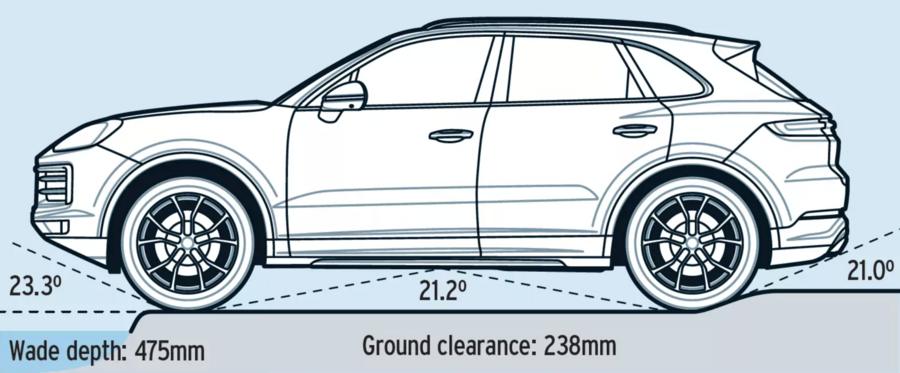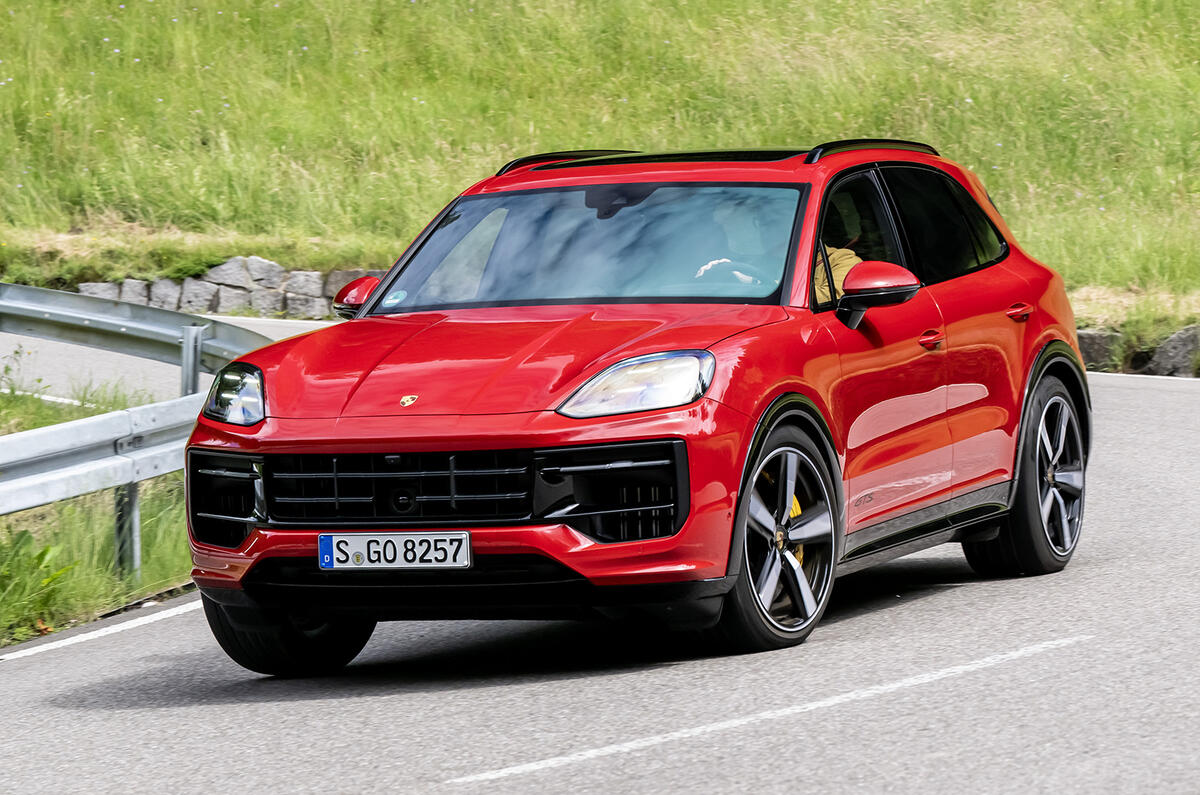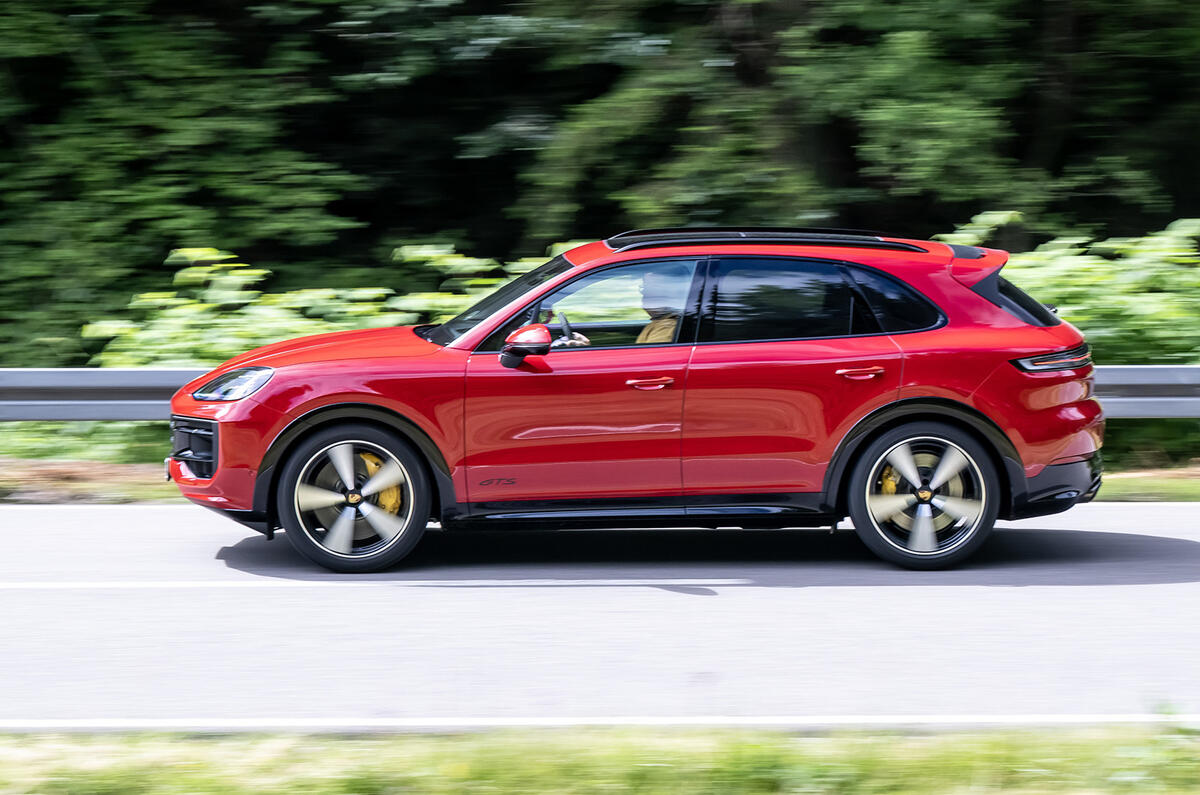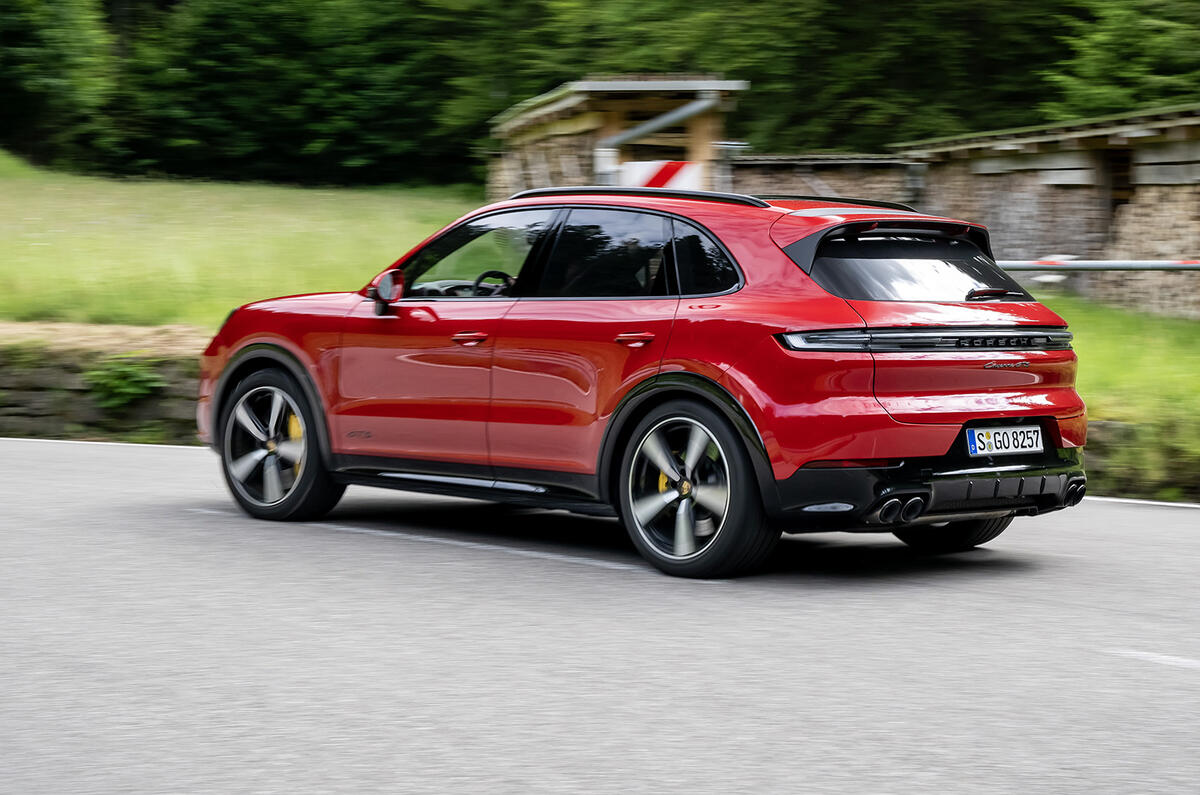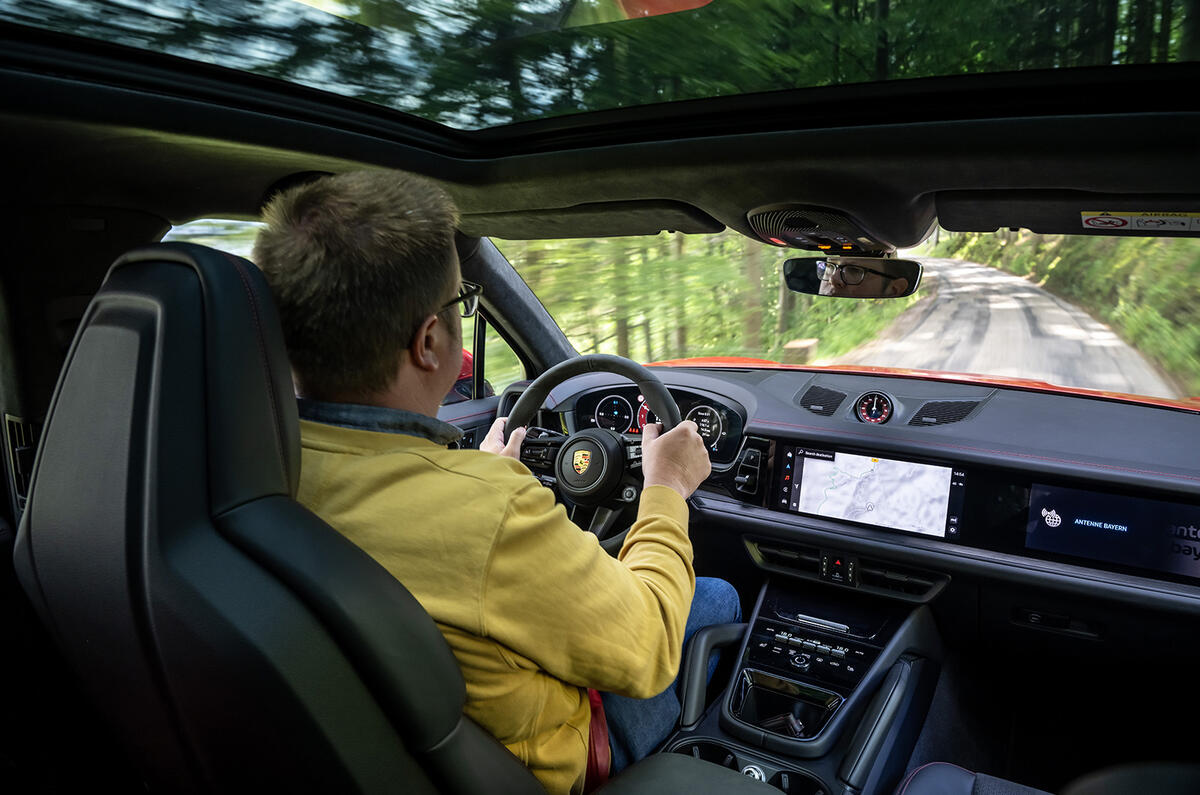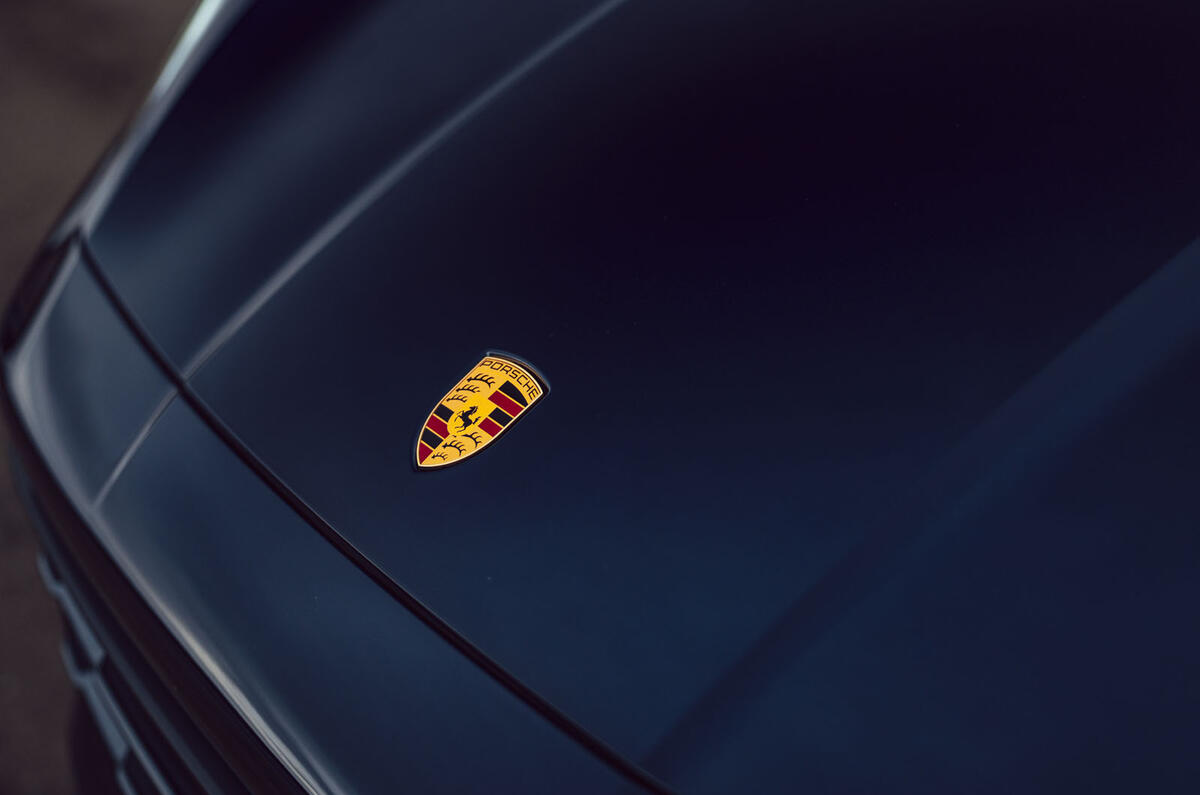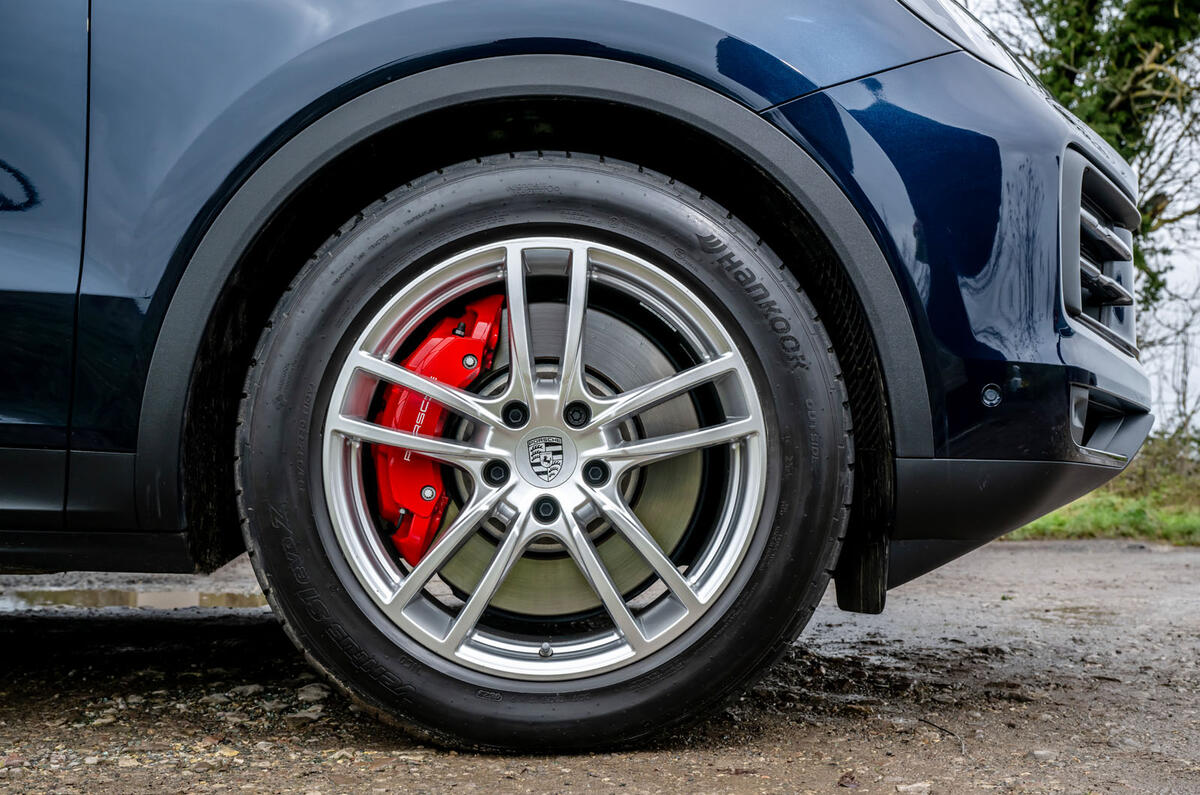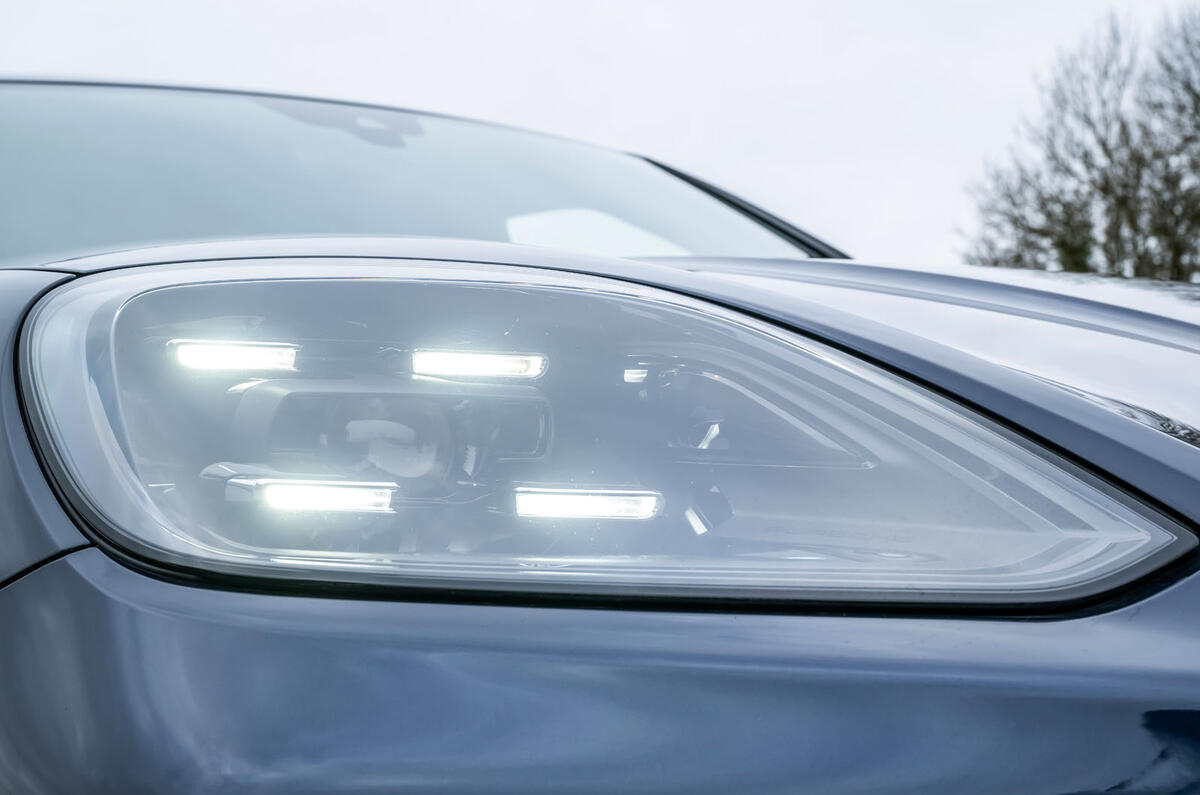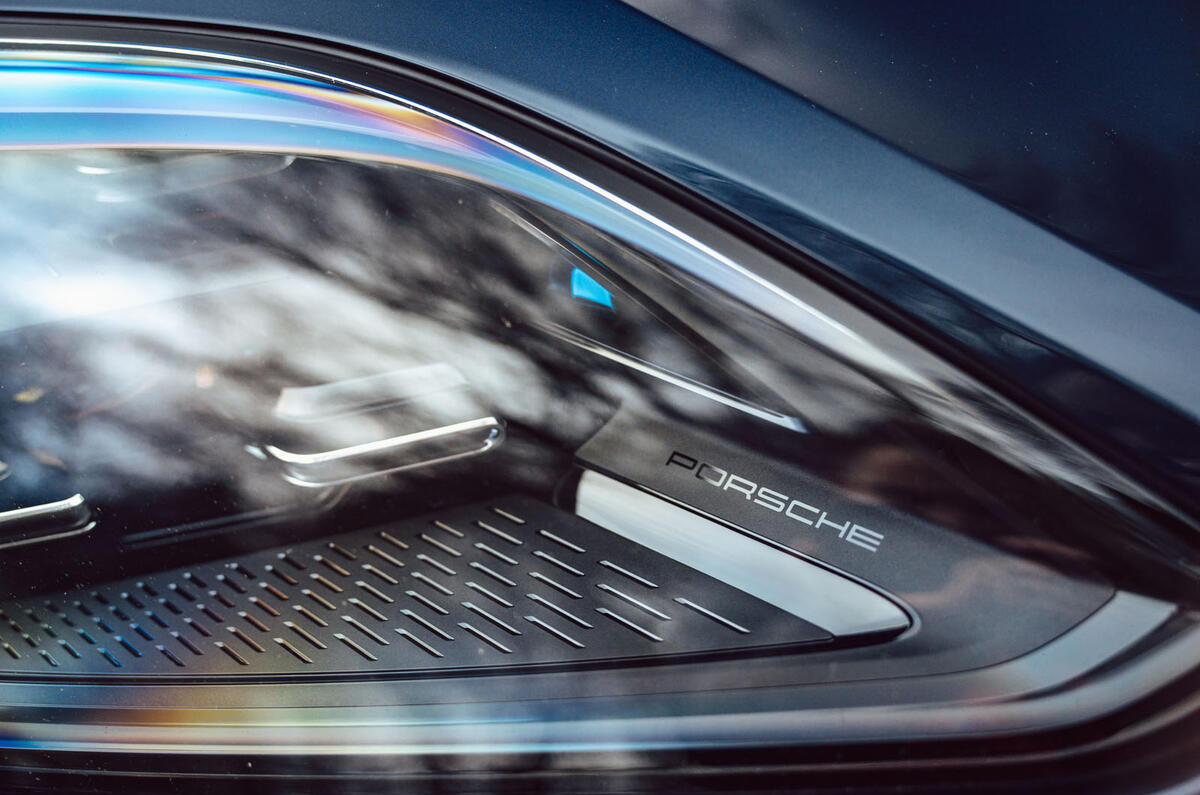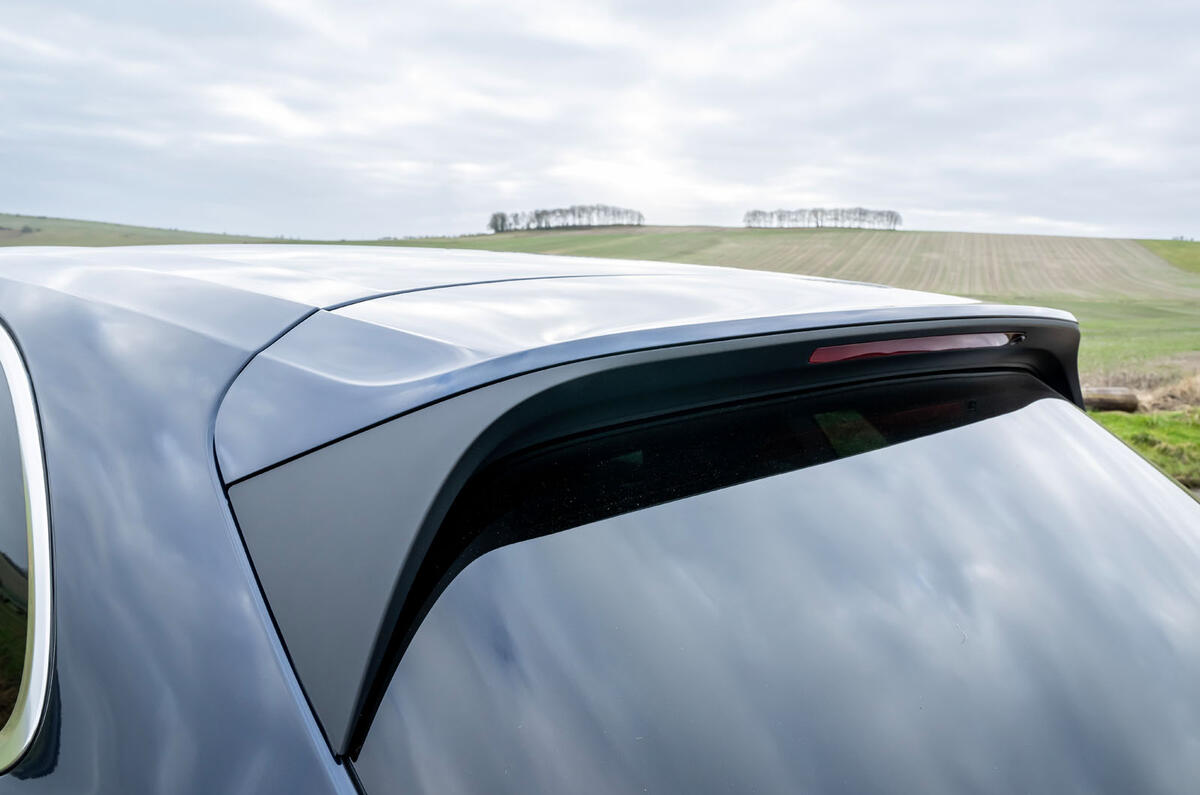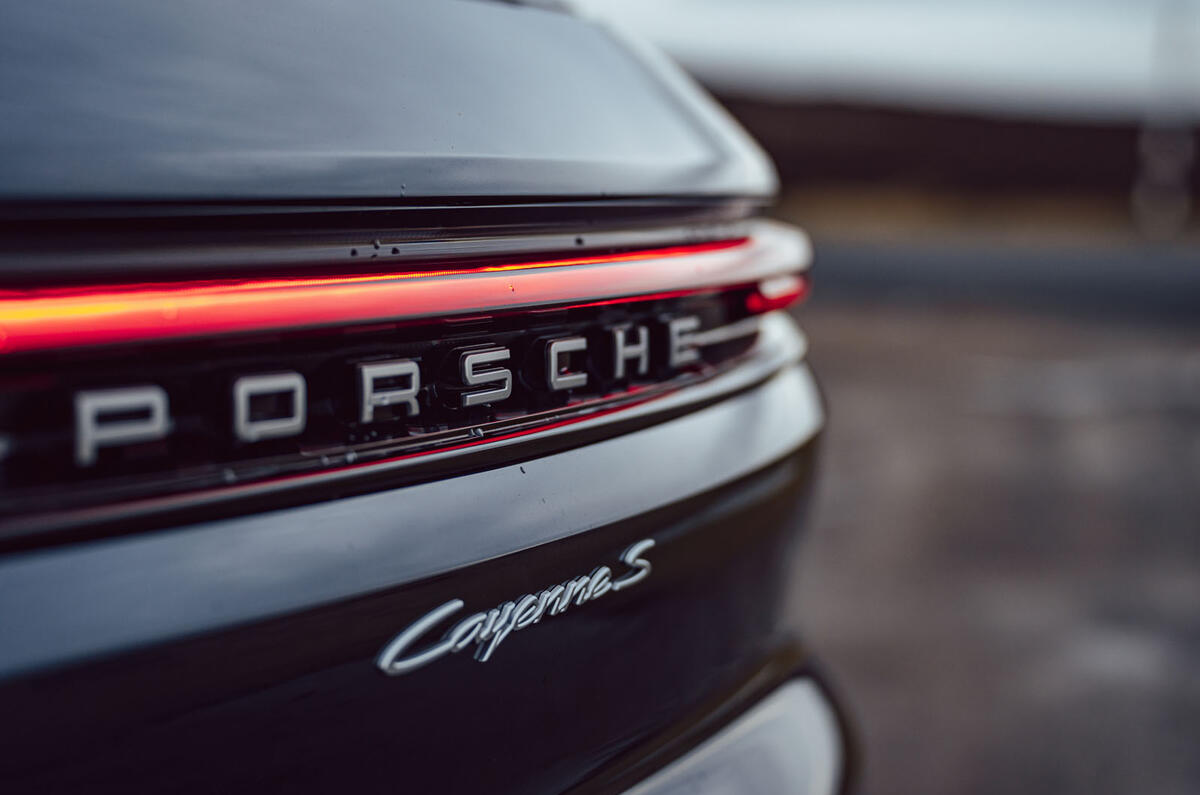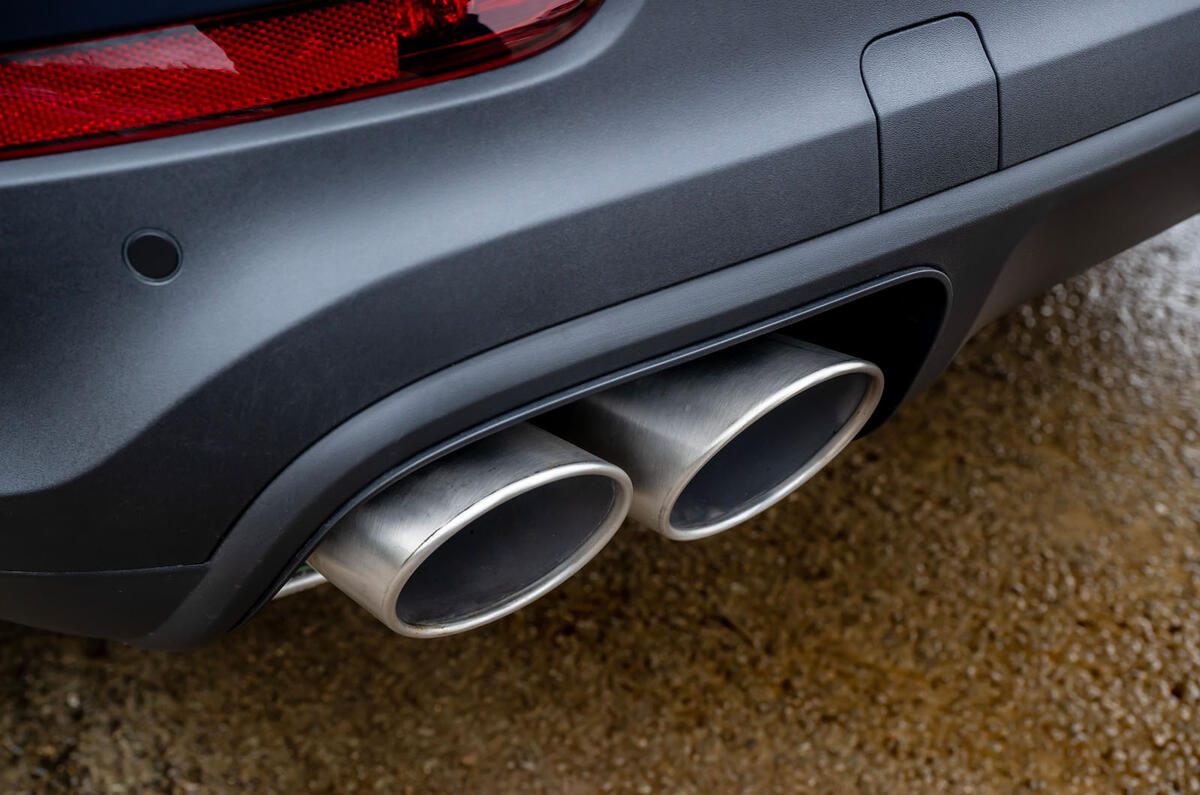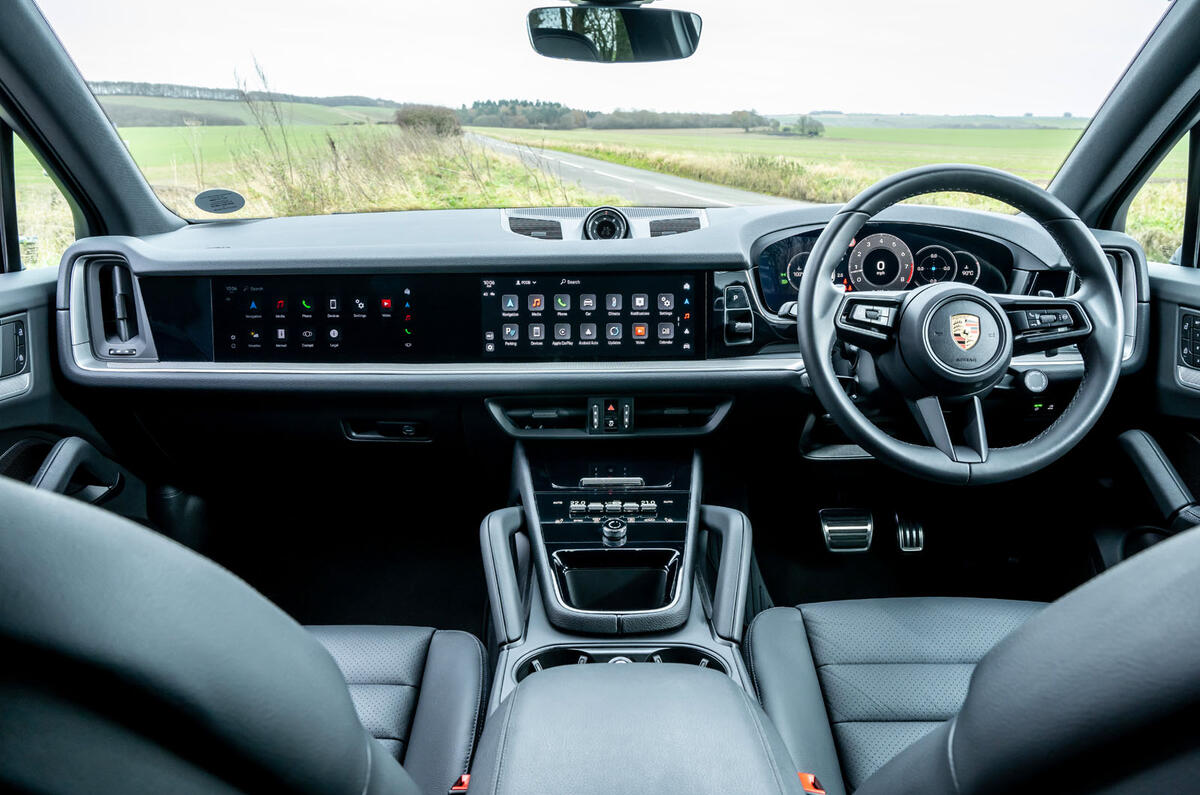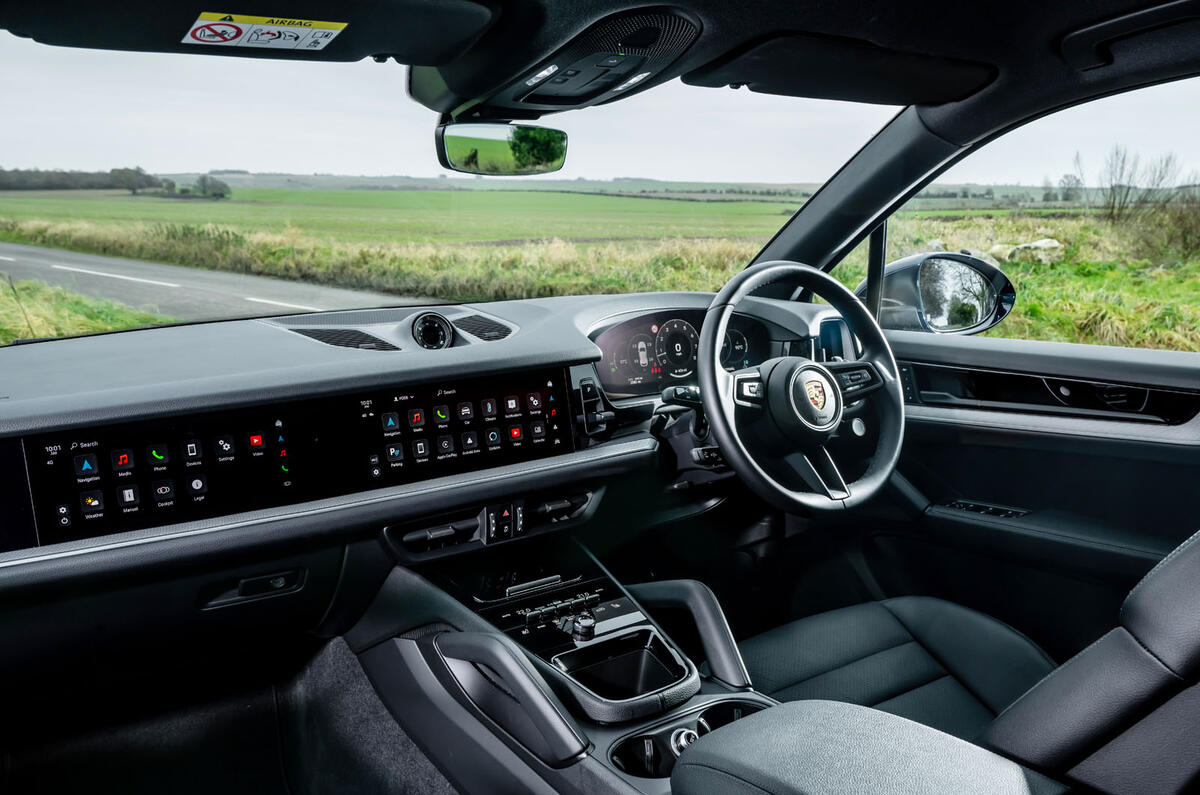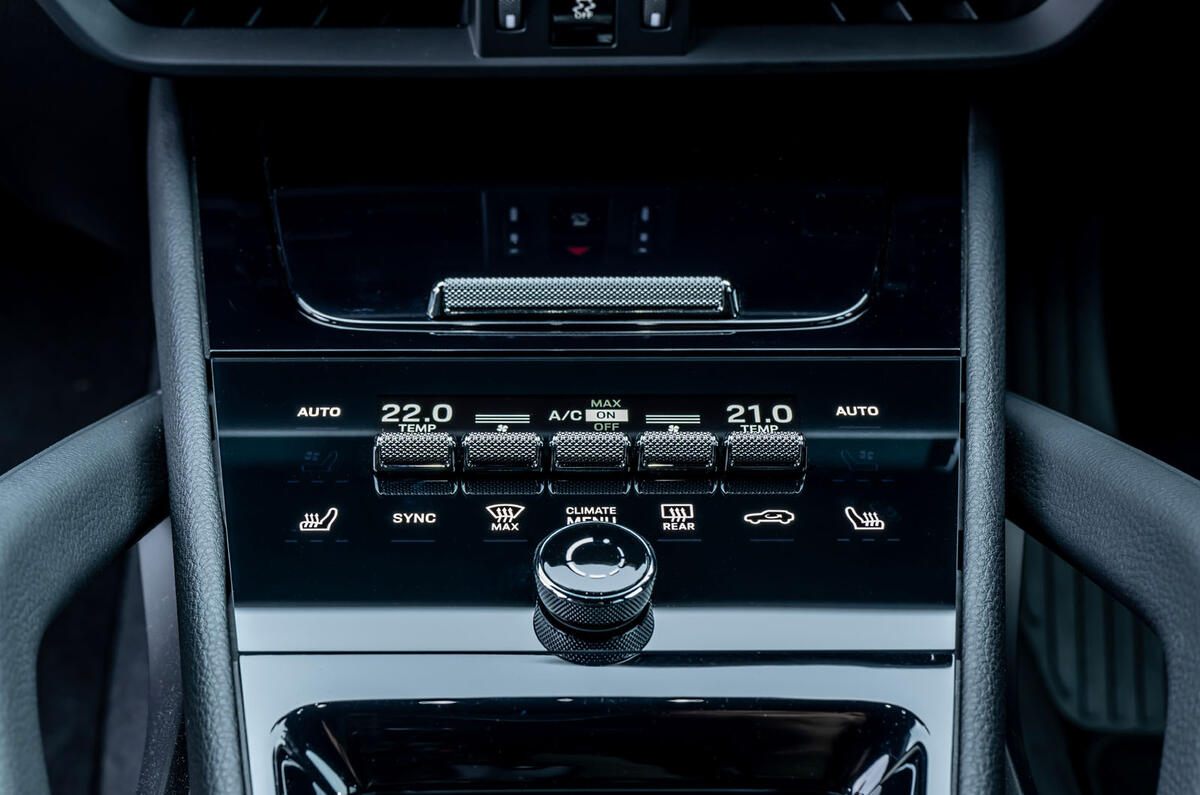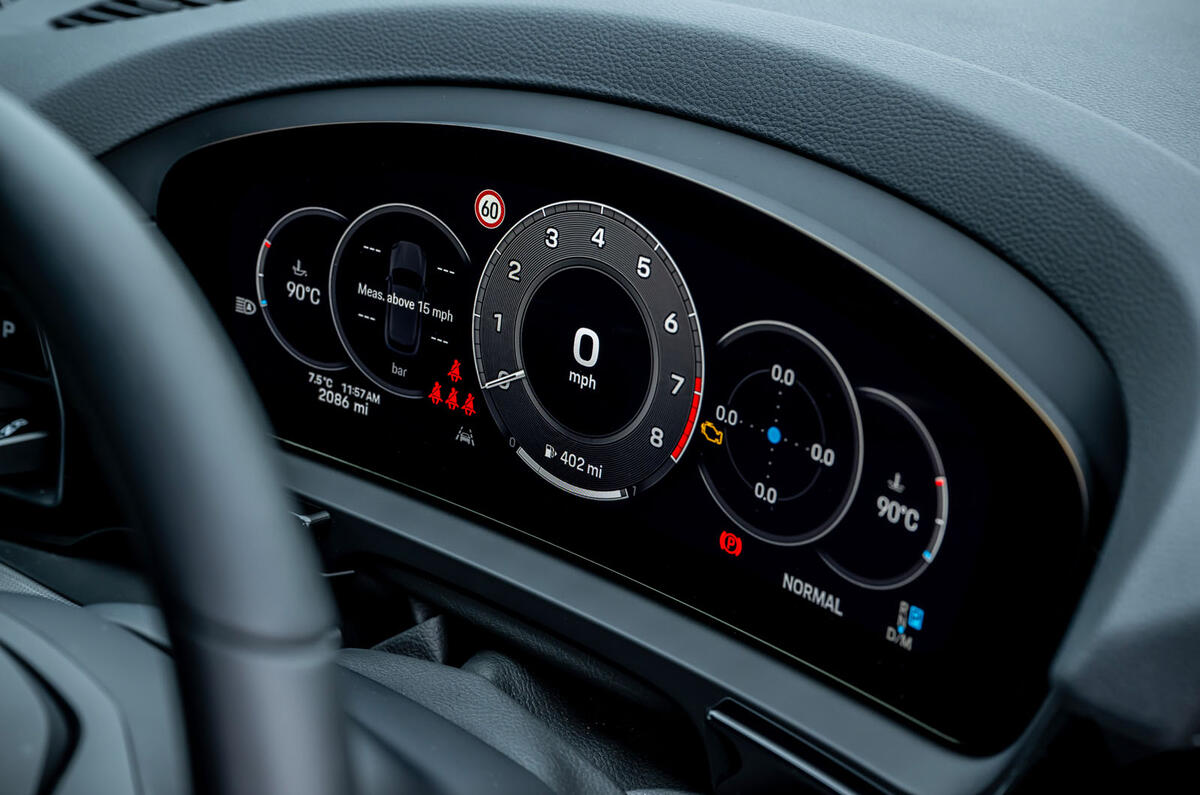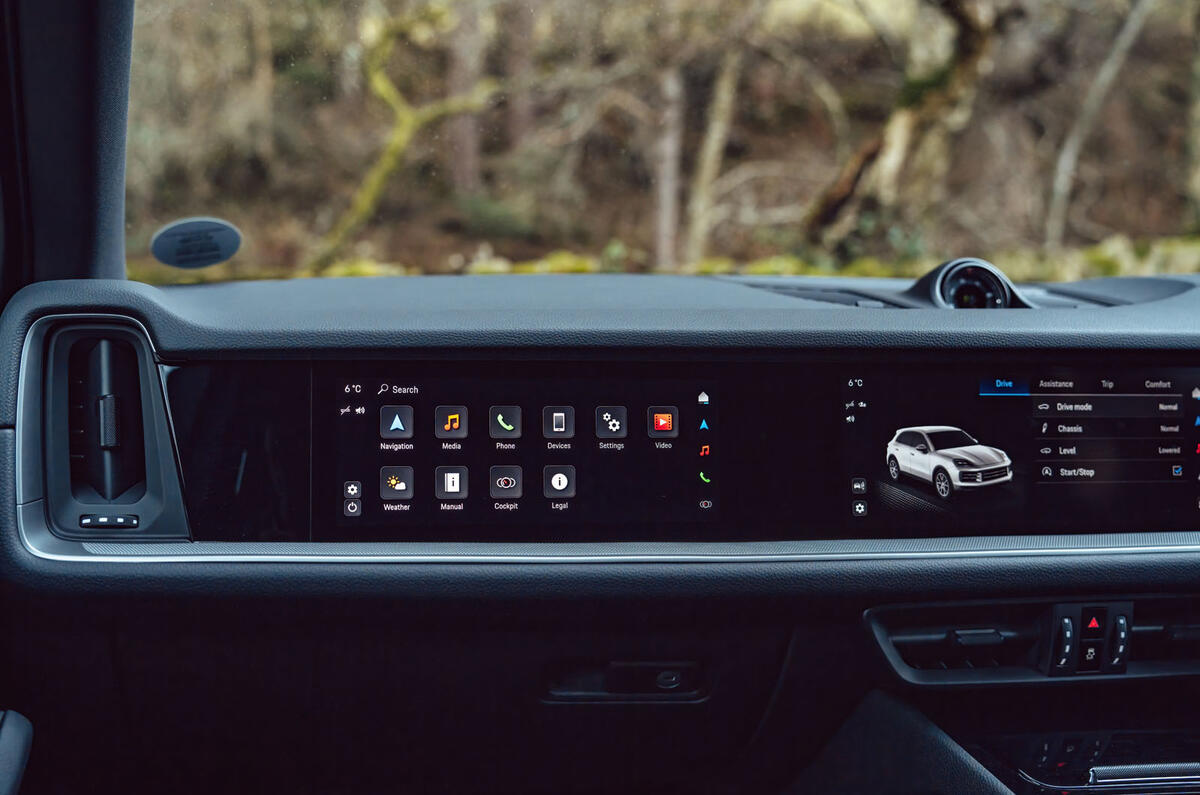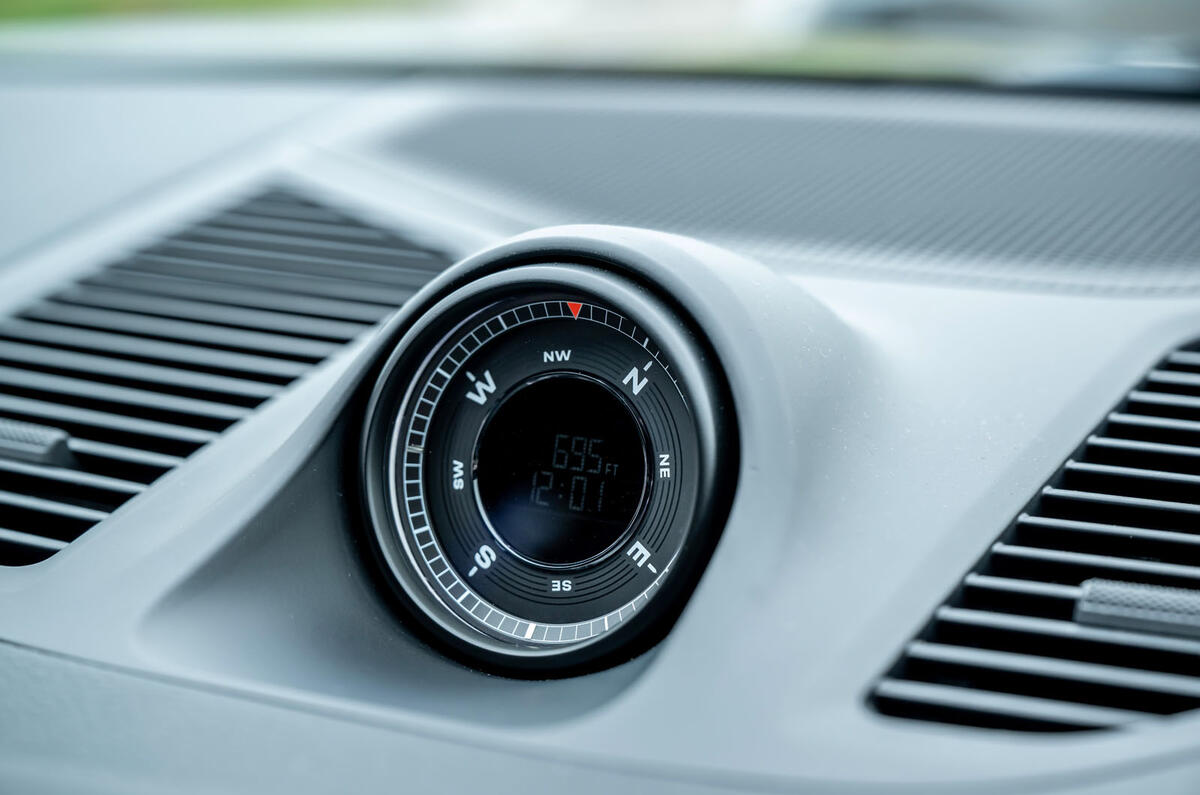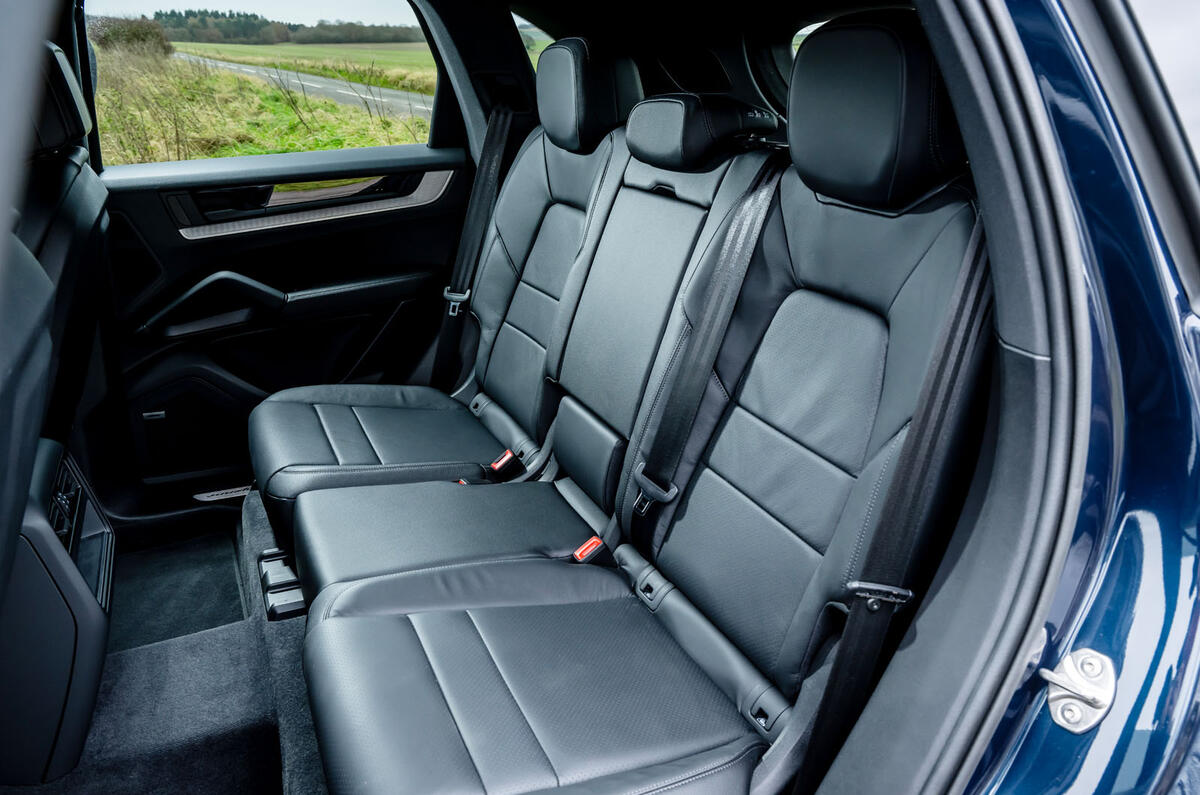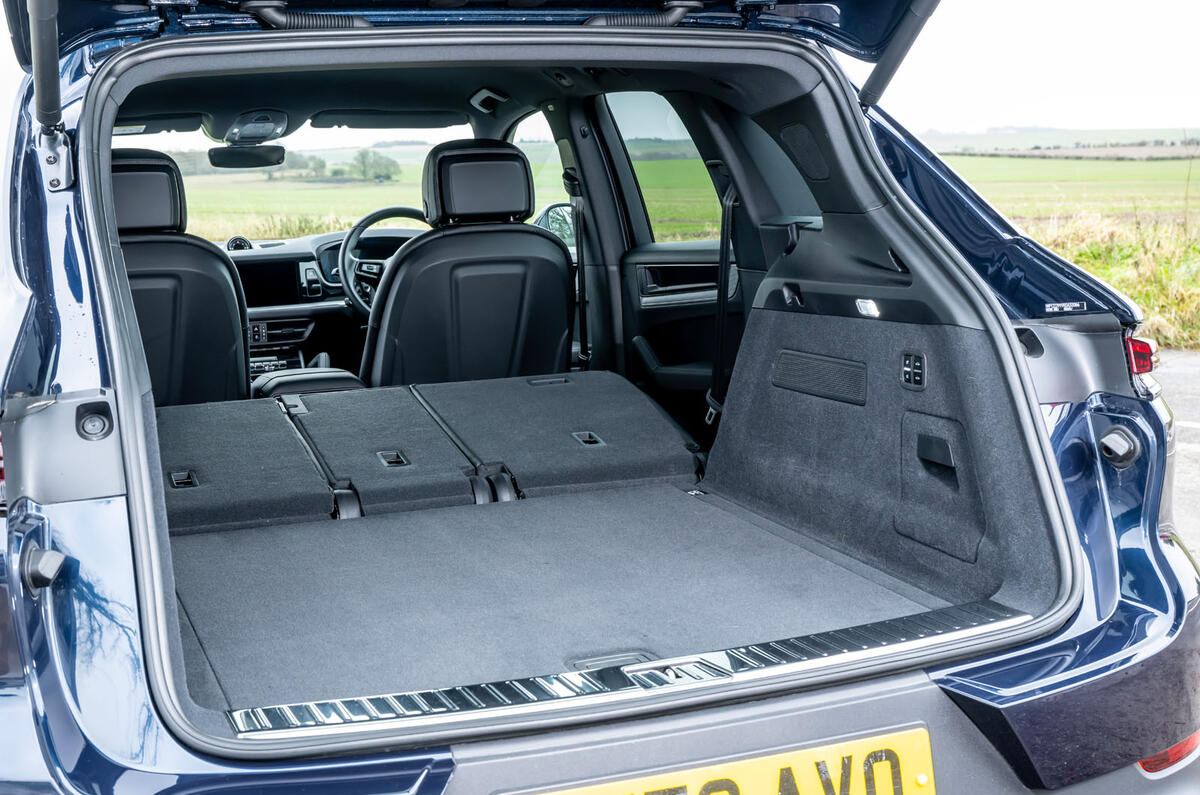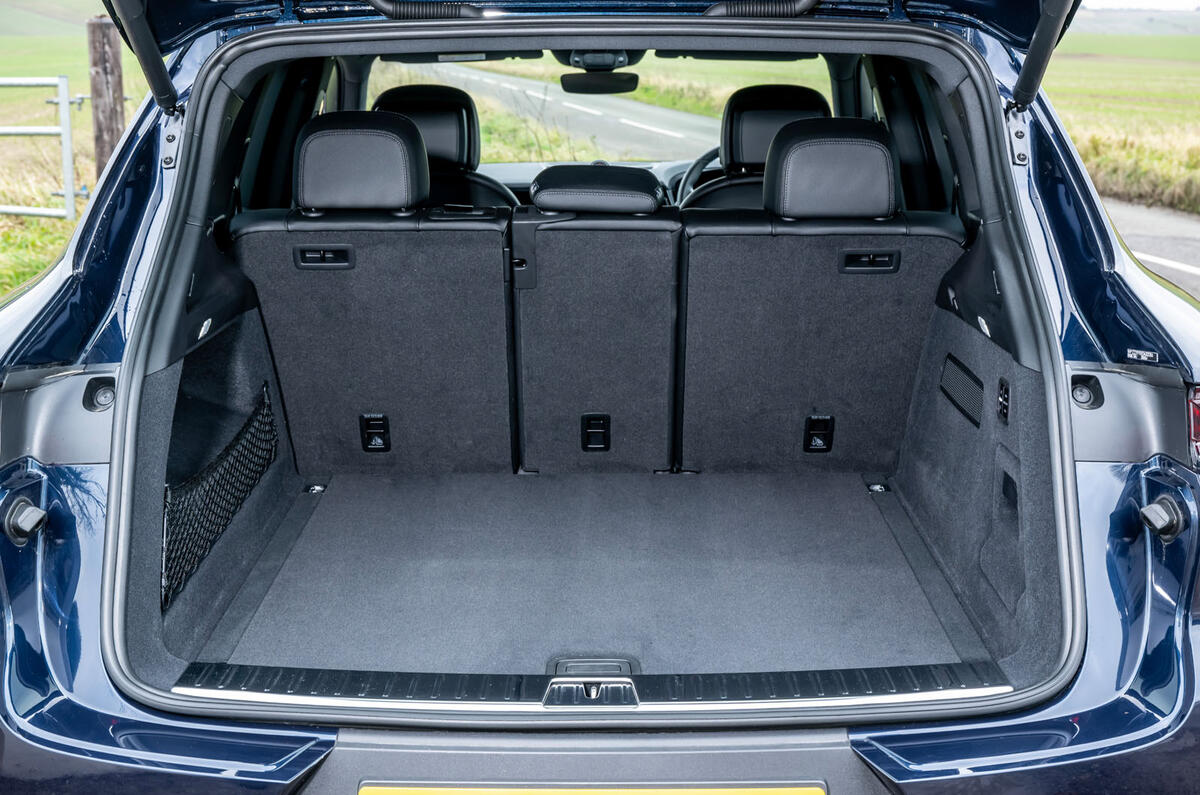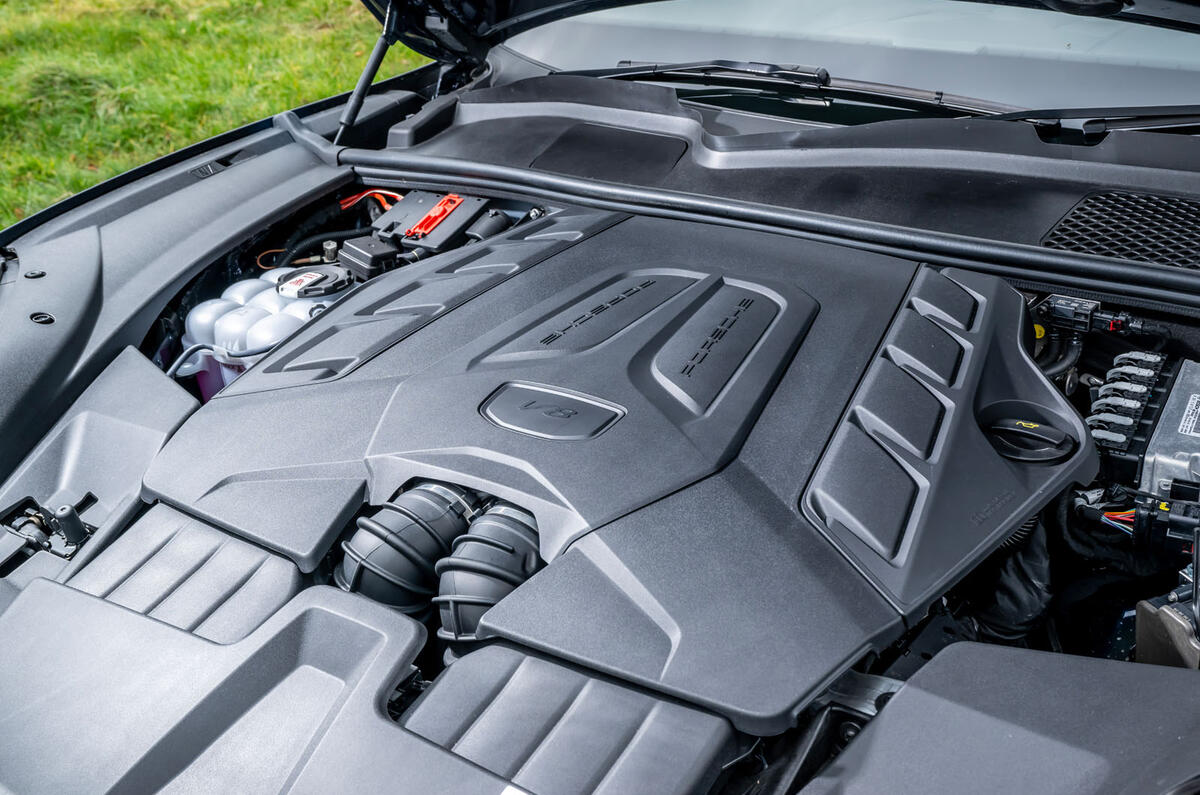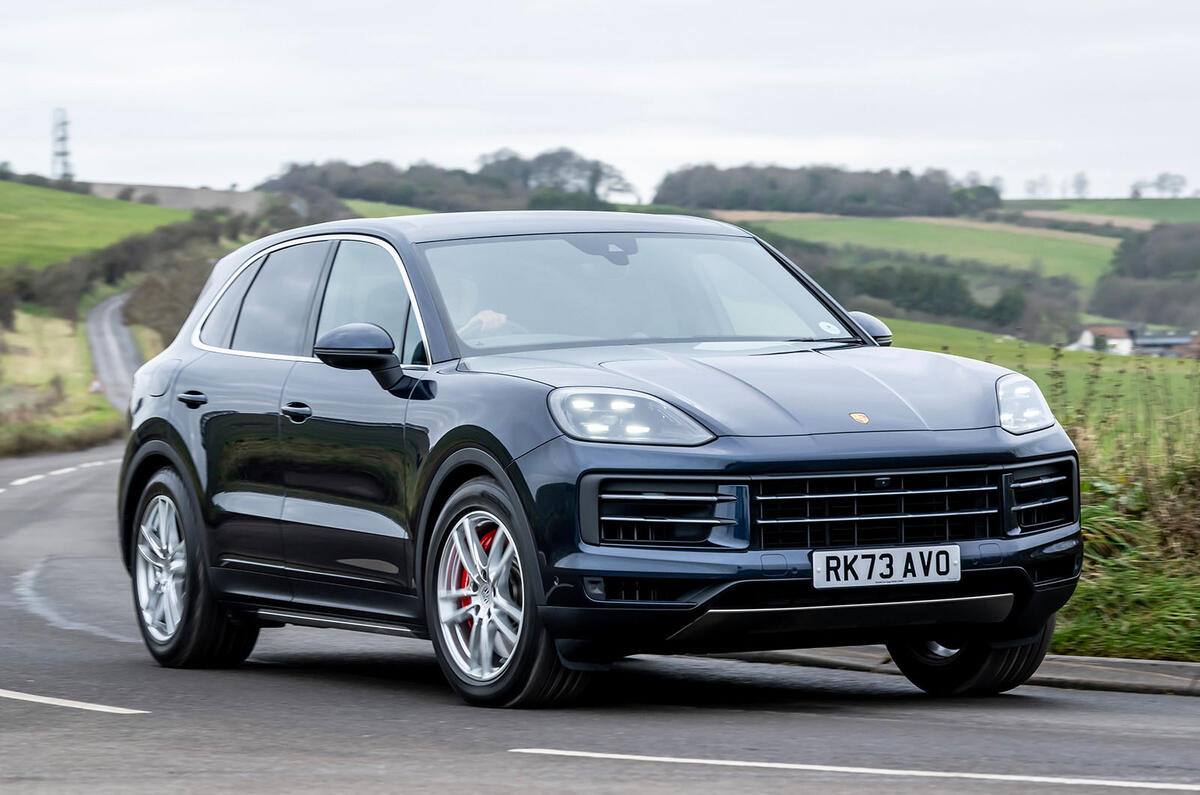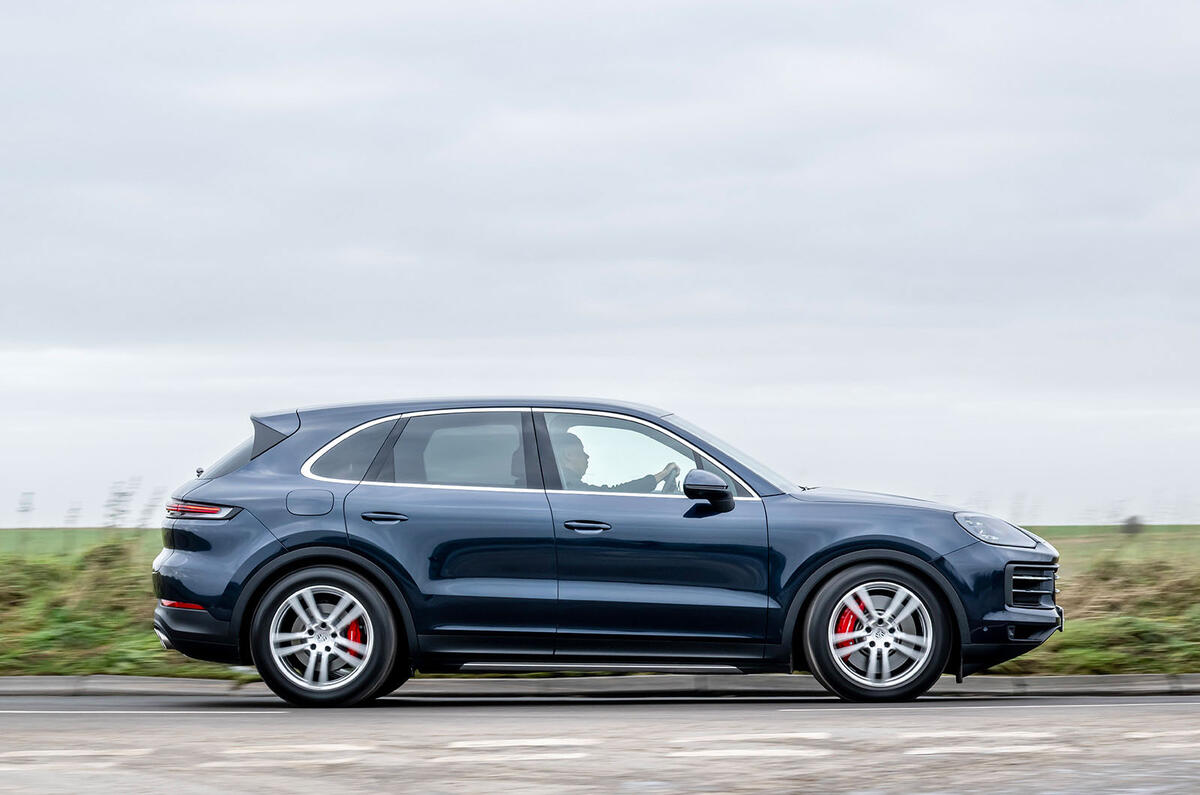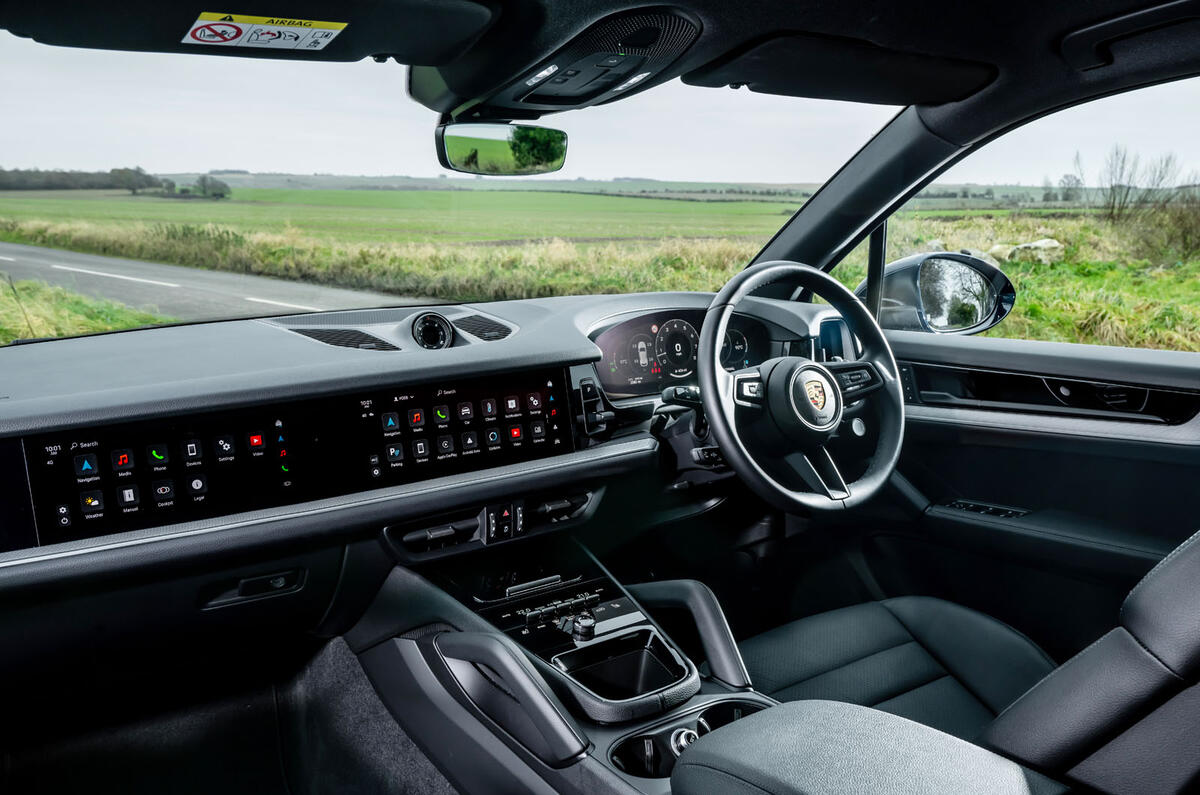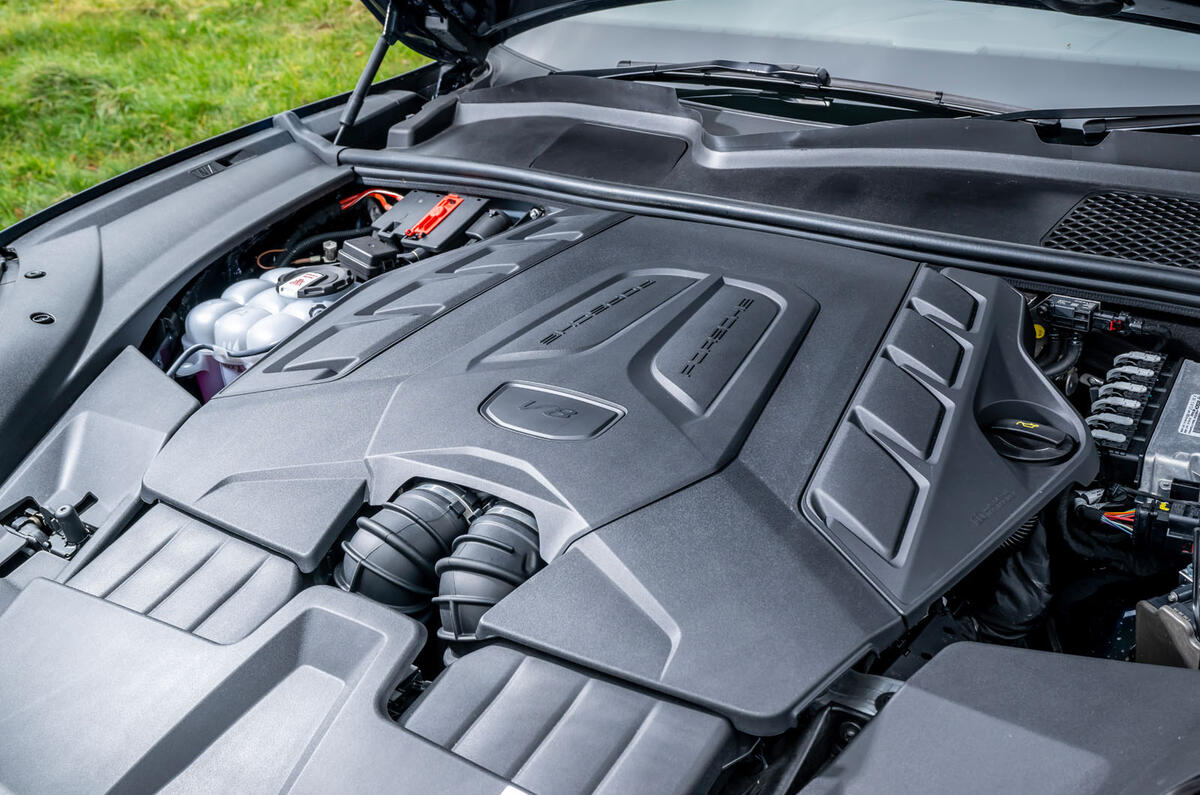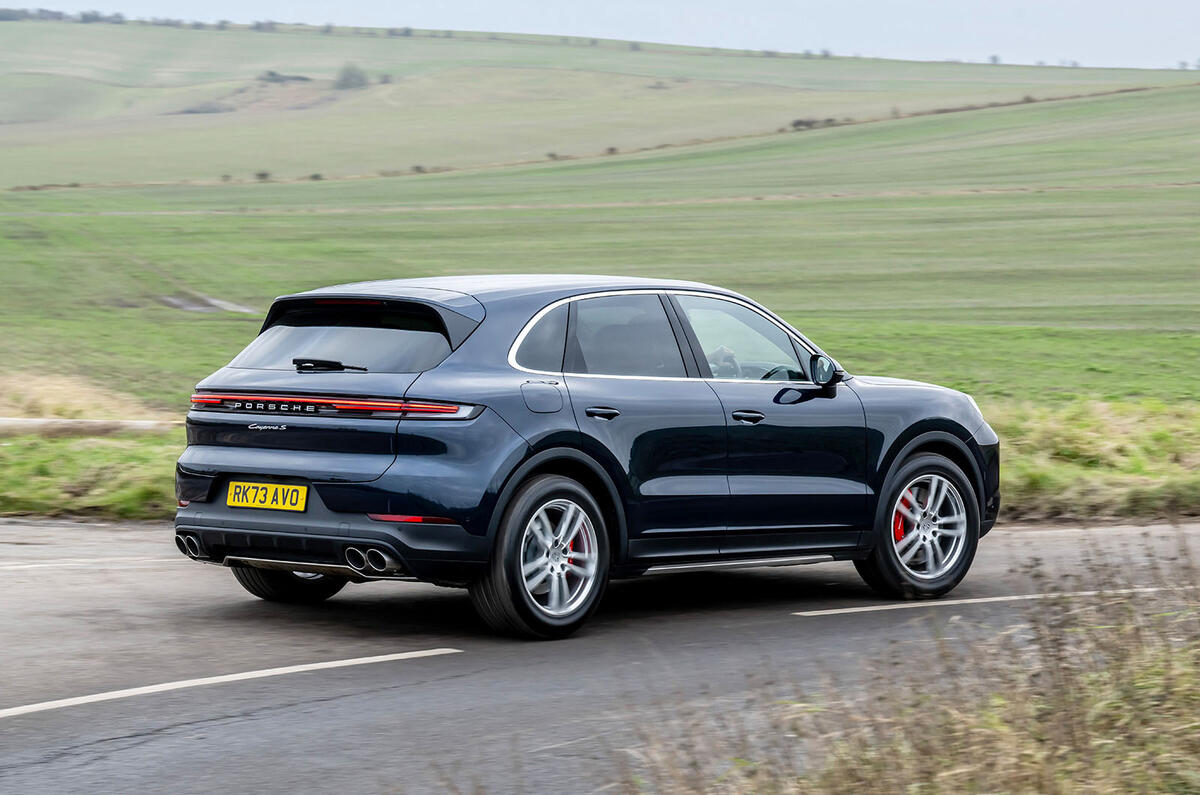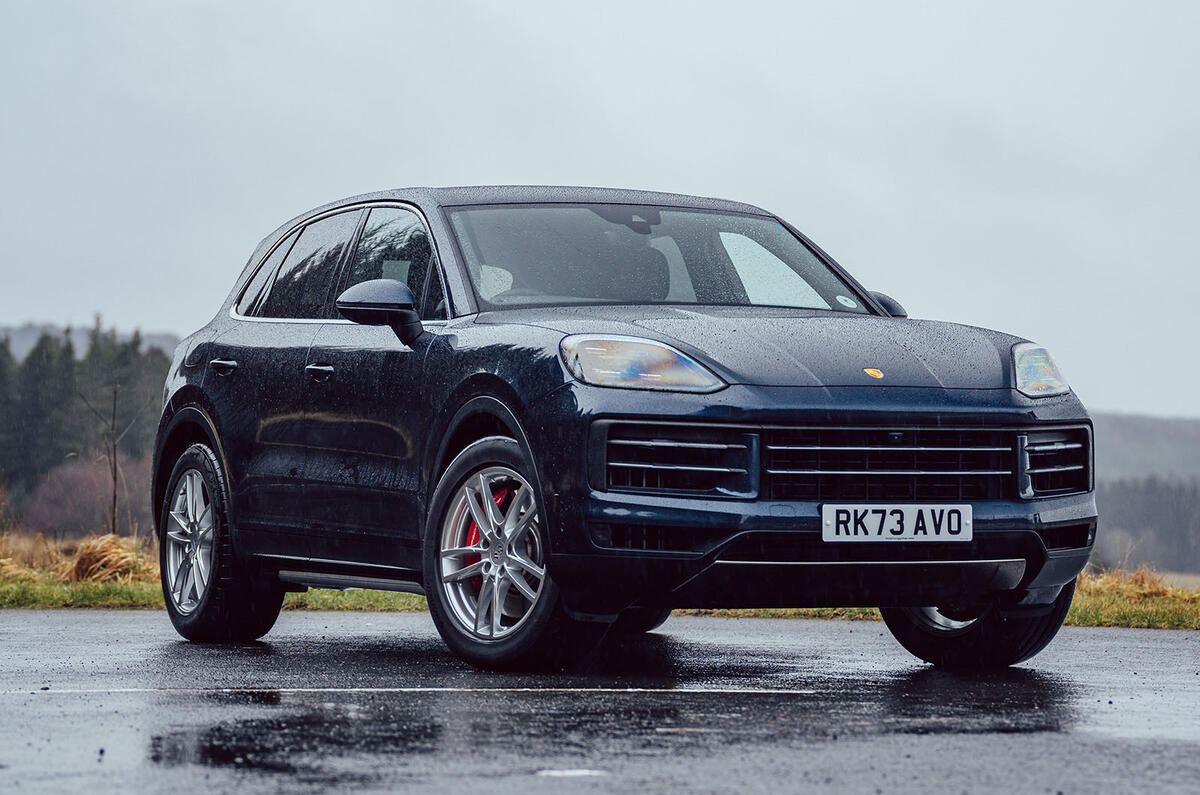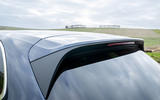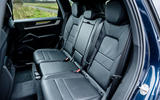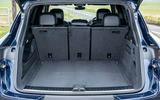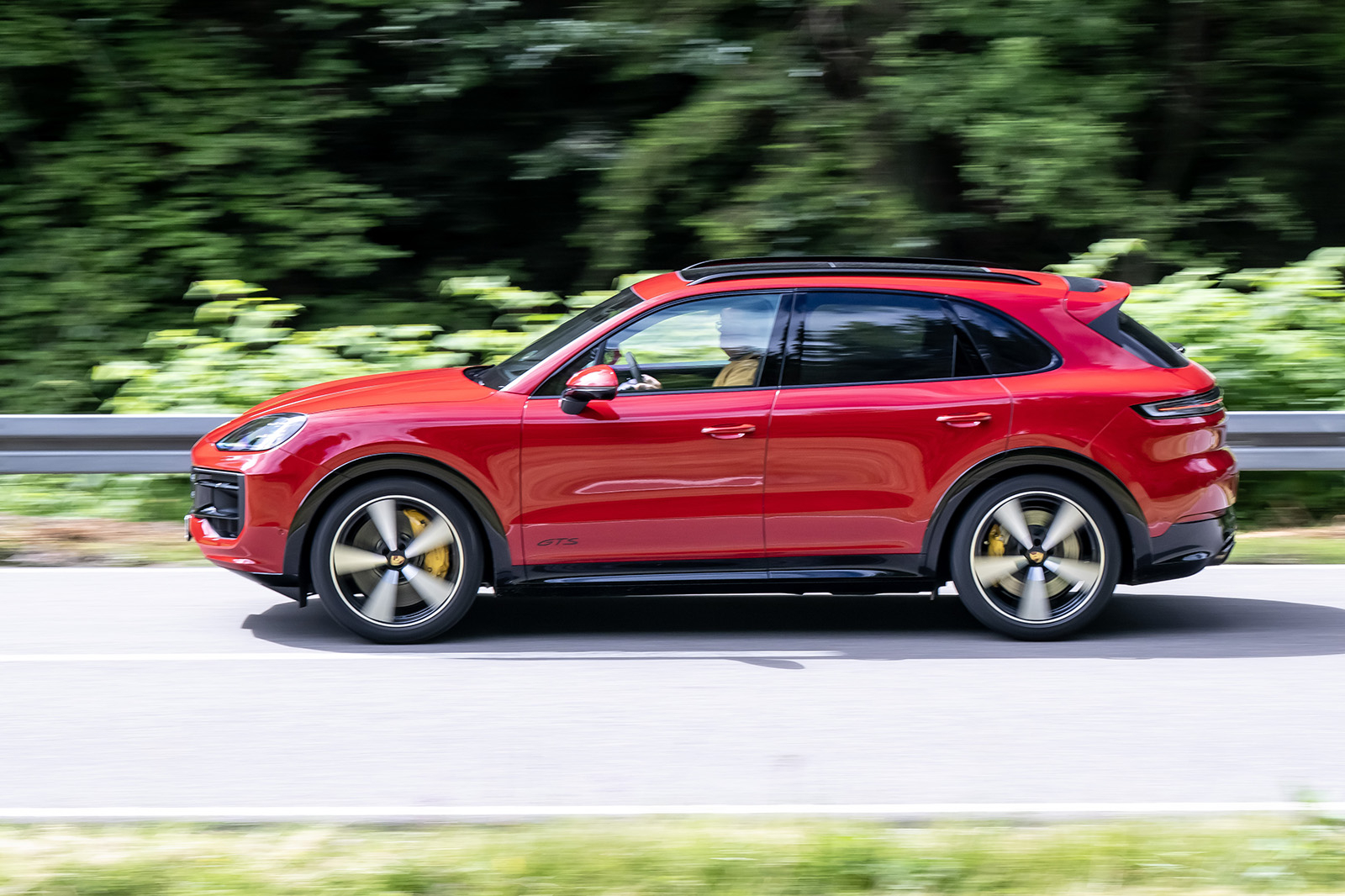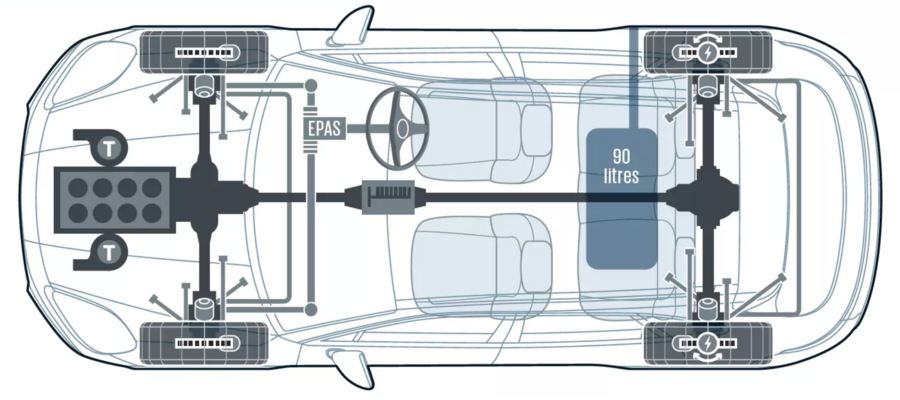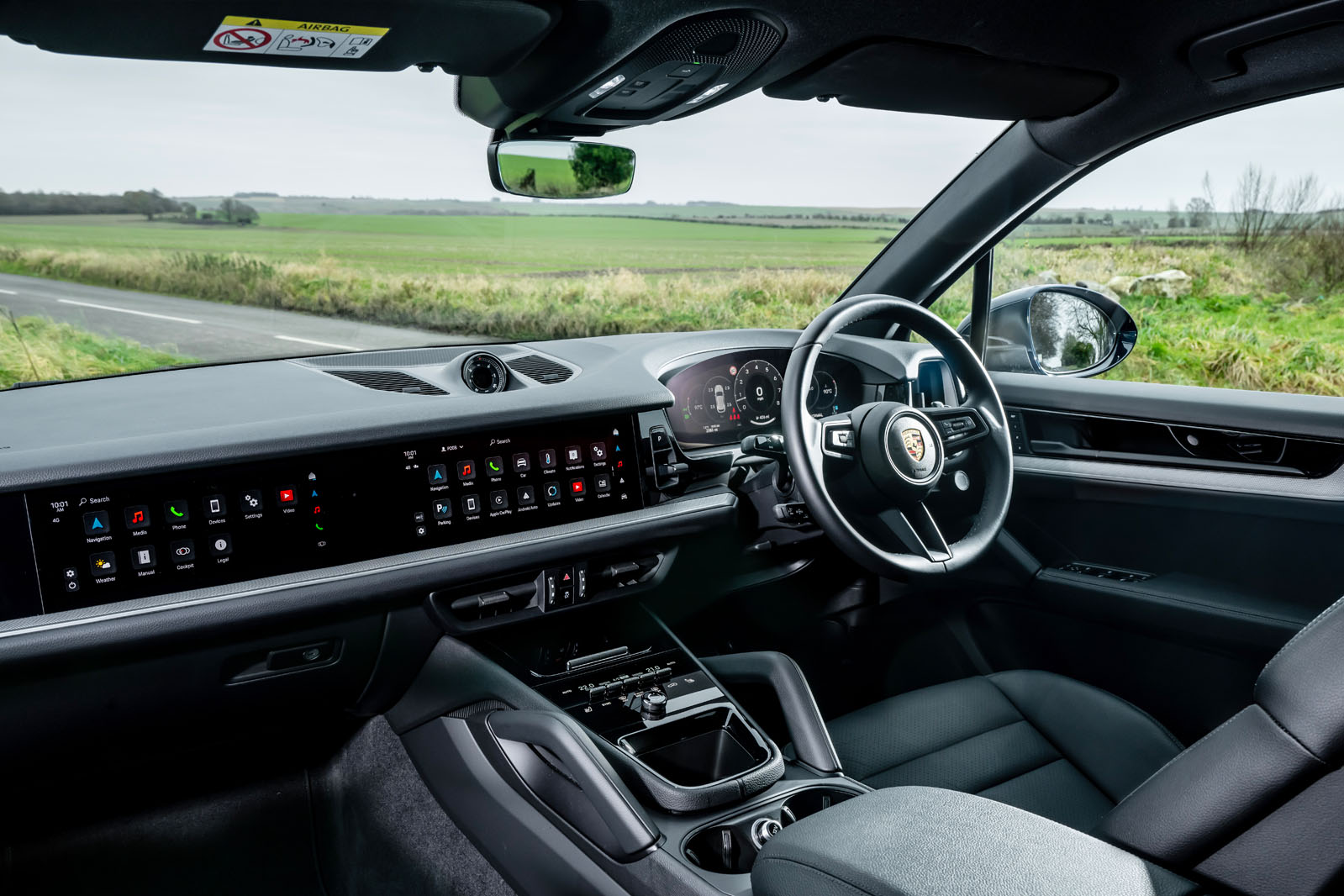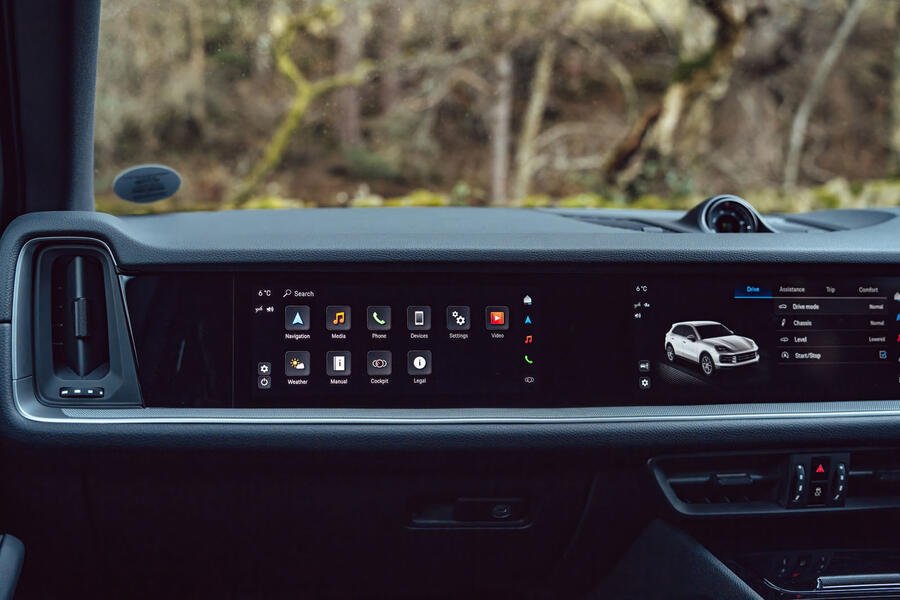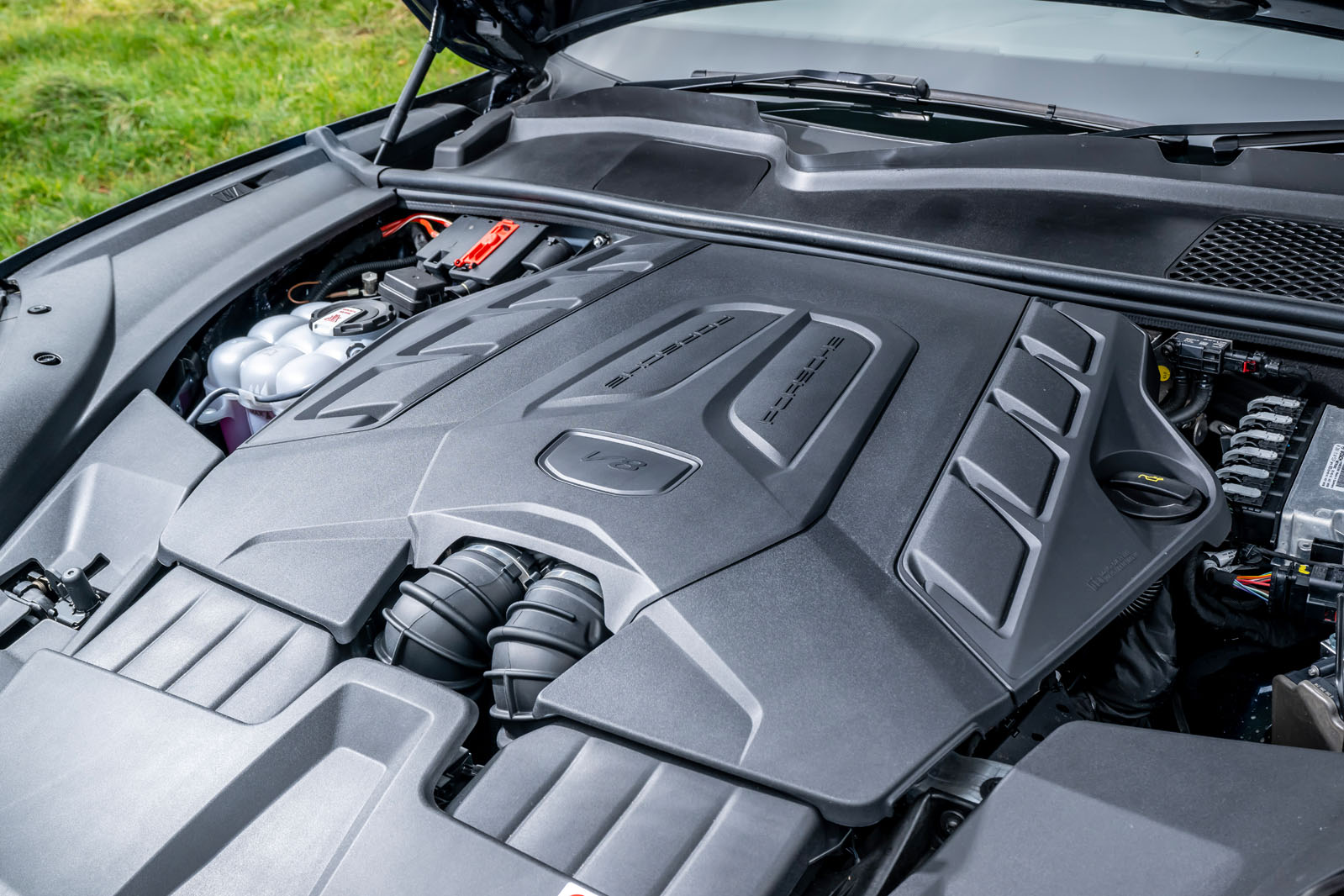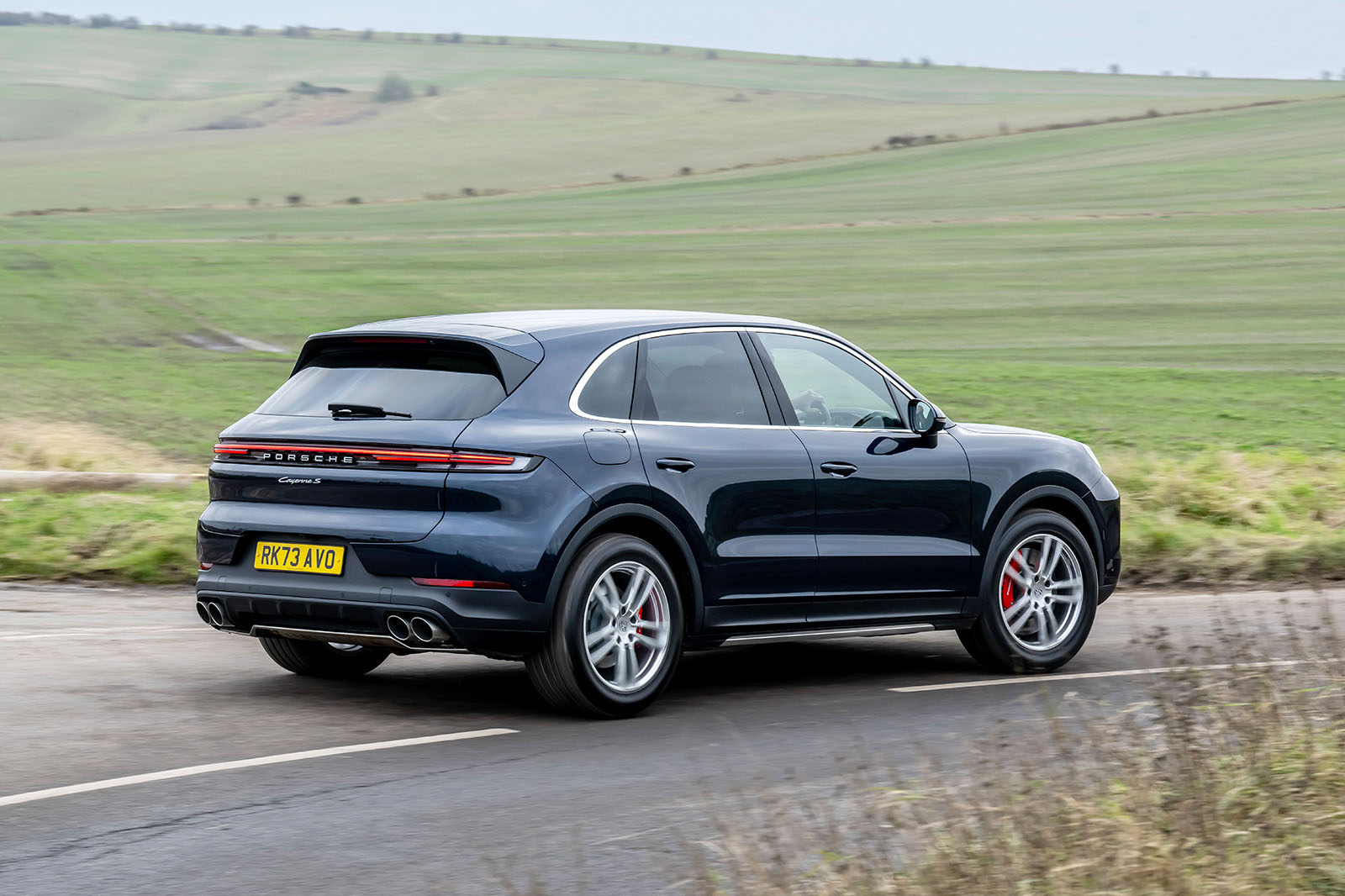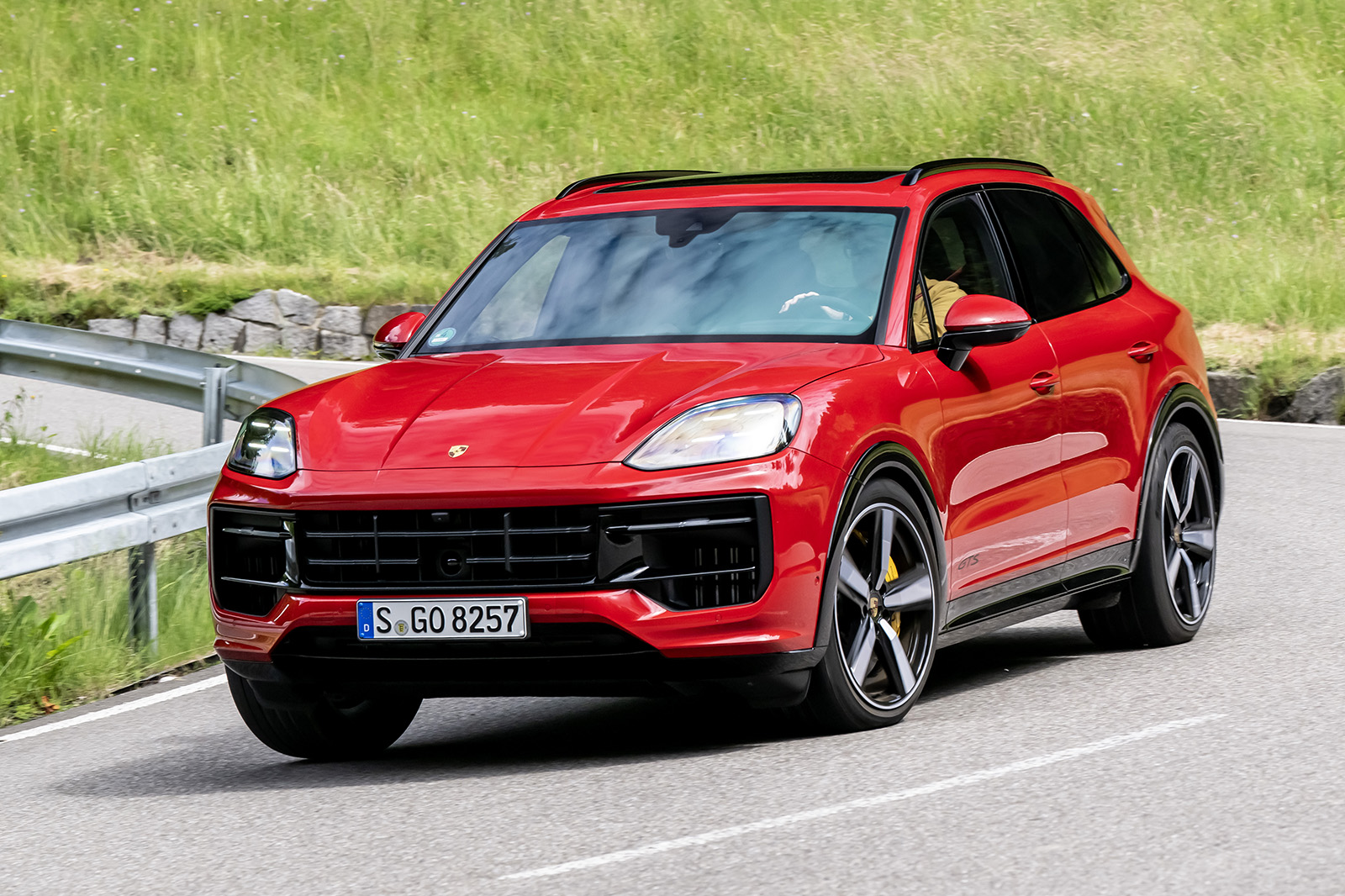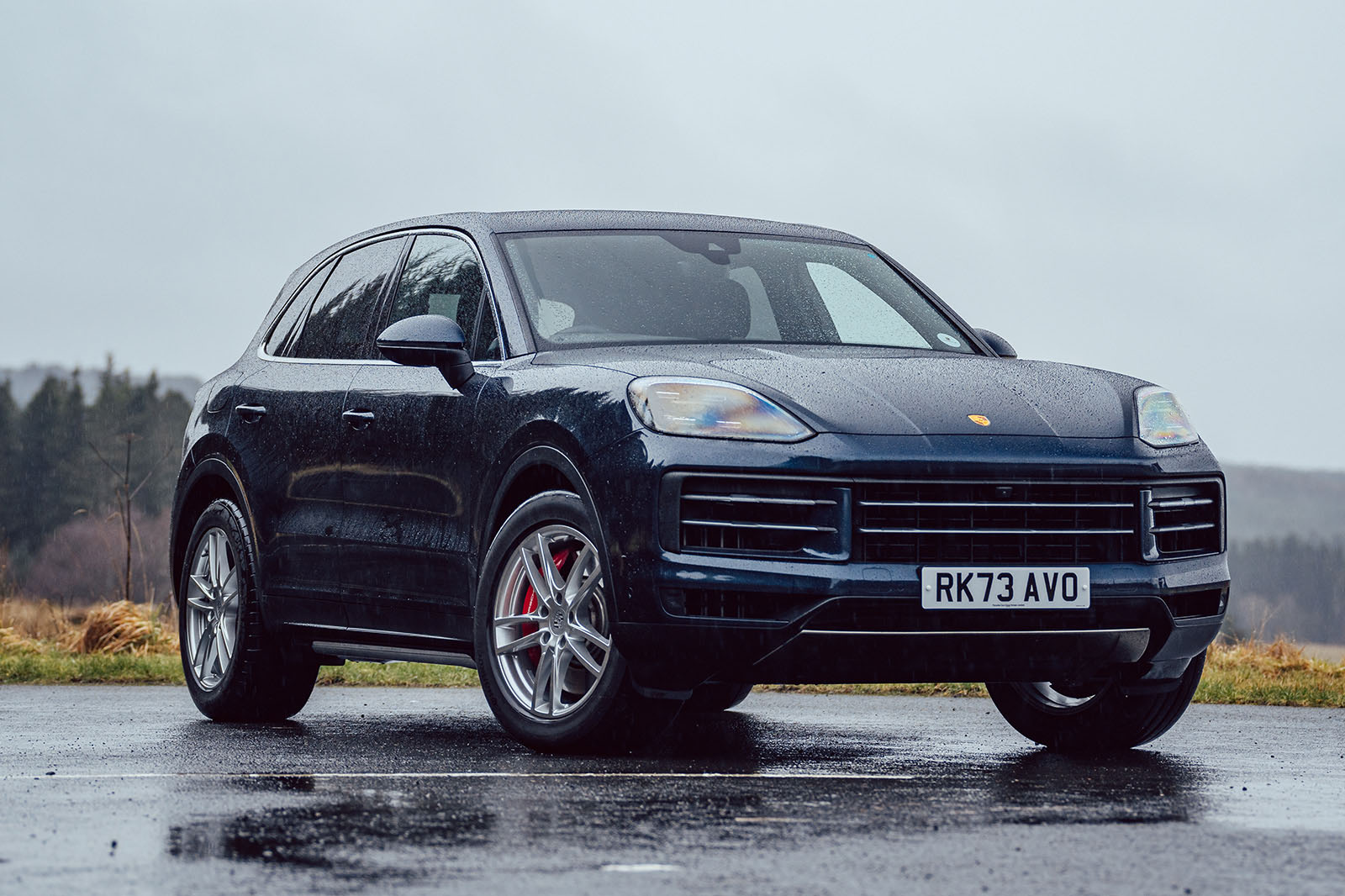Does it feel good to have V8 power back, and represented more broadly throughout the Cayenne model range than it used to be? It sure does.
In the Cayenne S, the 4.0-litre unit isn’t especially bombastic or raucous, exhibiting more of an old-school, sat-back character than many other modern V8s, and is all the better for it. It has a reserved personality and an organic feel that make it enjoyable company whatever the assignment and it goes about its business in a way that’s unlikely to draw any scowls from onlookers. But in the GTS, the engine's much more vocal and enticing, especially with the car's switchable sports exhaust set to noisy. So you can have a little demure, or a lot less so, as you prefer.
The five seconds it took the Cayenne S to reach 60mph (in wet test conditions) when rigged up with our data logger wasn't slow, but neither did it feel uncomfortably quick. In fact, it feels just right for a car like this. Likewise, the 30-70mph in fourth gear that we use to assess mid-range grunt and easy-overtaking ability was dispatched in an unspectacular but very creditable 6.3sec.
Admittedly, this is hardly comparing apples with apples, but a manual BMW M2 takes 8.0sec to cover the same metric, and Porsche’s 911 GT3 RS is only half a second quicker than the Cayenne S. Closer to home, the mad, pre-facelift Cayenne Turbo GT shaves only 1.1sec off our test car’s time.
A GTS is only a couple of tenths quicker still, according to Porsche's claims; but that amounts to a Cayenne with abundant real-world accelerating and overtaking clout, especially through the lower half of the range of intermediate gears. You'd only really want a quicker Cayenne than this if you had regular - and really very fast - destricted autobahn running in mind. Porsche’s Zuffenhausen-built V8 is responsive and torquey at lower revs and spins freely at high crankspeeds, and it sounds genuine, rich and unadulterated. It’s precisely the kind of engine that you’d expect a Cayenne to have.
Flexibility is its defining strength, really. The relatively high 6800rpm redline is matched by the 2000rpm depths at which it begins to deliver peak torque. You can take manual control of the gearbox via paddles, but unless you’re teeing up an overtake, there’s really never any need to. Even then, the gearbox control module generally has a fine sense of exactly how much go you would like based on the position of the accelerator pedal.
Also worth noting is the new electric brake booster fitted to the Cayenne S and E-Hybrid. In both cars, it can take tyre temperature into account and adjust the ABS intervention accordingly, and in the PHEV model it allegedly ensures a smooth handover between regenerative and friction braking. In practice, the system feels good, being wholly progressive. But be wary of Porsche's optional carbon-ceramic brakes if you're looking for really smooth and linear brake pedal progression; the 'PCCB' carbon stoppers have a slightly grabby initial bite, and can annoy a little at low speeds.
As for the overhauled base-level Cayenne V6: on the road this engine certainly feels torquier than it used to – little freer-revving at the top of the rev range, but very refined, and well capable of a turn of pace that feels assured rather than especially fast.
Off-road notes

If you plan on taking your Cayenne down lightish trails or muddy lanes, we would advise ticking the box for air suspension. The ability to raise the ride height at the touch of a button makes a meaningful difference to the car’s off-road geometry, which is reasonably impressive for something so assiduously honed for on-road dynamism, if still no threat to that of the Range Rover Sport.
You can also add PTV+, which can lock the rear differential. All models get Porsche Traction Management and Off-Road mode. Our car was also equipped with the Off-road pack, which adds reinforced underbody protection, a compass display on the dash and a tilt/incline/steering angle readout in the PCM.
The steep, rocky perimeter road of the off-road course at Millbrook Proving Ground posed no problems whatsoever for our test car, which surely ranks as one of the most broad-batted cars we have ever tested at the facility.
